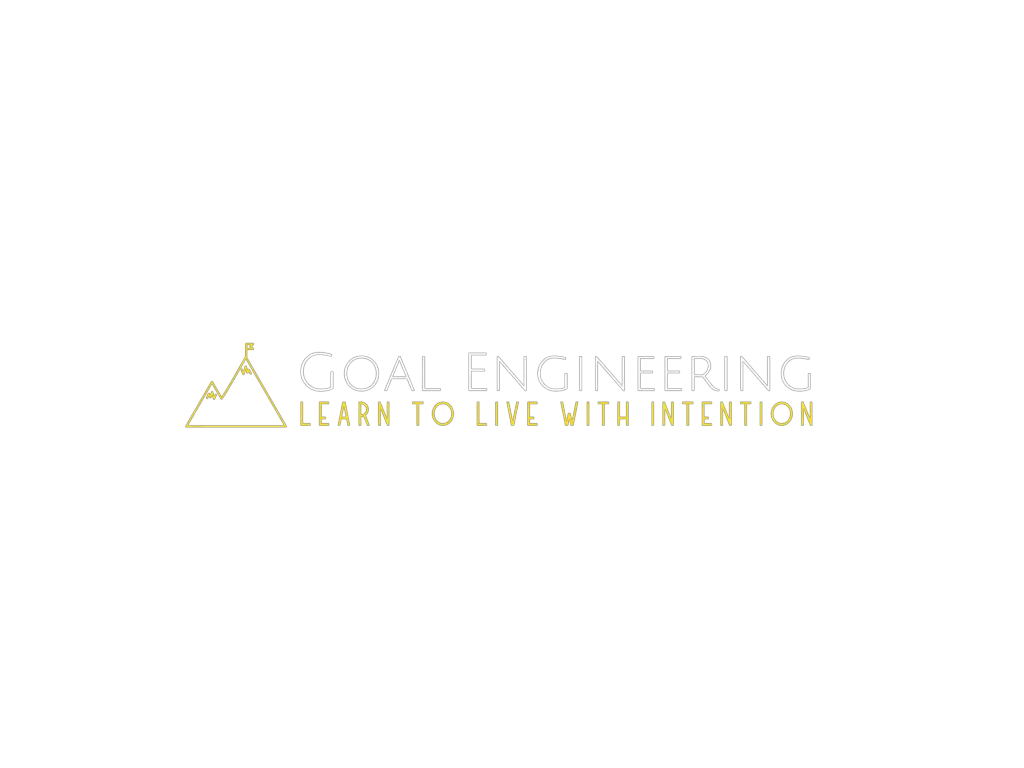If you don’t set goals, you will never improve. Every bit of growth you’ve ever experienced came because you had a goal first. Nothing worthwhile comes into your life and stays without you being intentional. Setting goals isn’t always easy, though. But it doesn’t have to be so difficult, either. Today, I want to explain why setting goals is so hard and how to make these things a little easier.
There are three main reasons why goal setting is so difficult:
- You make it hard by overcomplicating the process.
- Change is inherently difficult.
- Your brain resists growth because it wants to keep you safe.
In my 15+ years of goal-setting experience, I’ve seen how unnecessary many of my struggles were, but only after I figured out how to simplify the process. Which, after all these years, I’ve been able to do so well that it’s helped me reach far bigger goals than I ever imagined.
My hope is that these lessons I’ve learned the hard way will make it easier for you to set and accomplish your own goals so that you can have the power to reach your dreams too.
1. You Overcomplicate The Process
“The ability to simplify means to eliminate the unnecessary so that the necessary may speak.”
— Hans Hofmann
Every time you hear about setting goals, what comes up? SMART goals, right? The funny thing about SMART goals though is that nobody really uses them. They don’t work because they’re too complicated.
This is just one way that you get stuck overcomplicating the process. You can also set goals too high, follow the standards of others, or fall into the trap of using some other fancy goal-setting system.
To set awesome goals and achieve them, you only need 4 steps:
- Set. Pick just 4 goals in the main areas of life, which are spirituality, relationships, finances, and health. You only need these 4 because it focuses you on what’s most important and cuts out everything else. With just one goal in each area, you have to hone in on what will make the most difference and make all other goals unnecessary.
- Plan. Make a plan for each of your 4 goals that includes an outcome and action steps to get you there. For your health goal, for instance, your outcome might be to lose 12 pounds and your action steps may include exercising 3x per week or cutting added sugar.
- Act. Just start working on your goals. This is the most important step because without it, nothing else is possible. It also gives you vital information you need to adjust your goals that will help you stick to them.
- Track. Record your progress daily and check in weekly to make sure that you’re on track to reach your outcome. If you’re off track or realize the outcome isn’t what you really want, then change your goals.
And that’s all there is to it! Follow these four steps and setting goals won’t be so hard anymore!
This is how I’ve learned to set goals after a lot of trial and error. It’s the only way I’ve found to really stick to your goals and it’s helped me do a lot of great things like run a marathon, get married and start a family, grow my income, become a better dad, buy a house, and so much more.
2. Change is Hard but Good
“You never change your life until you step out of your comfort zone; change begins at the end of your comfort zone.”
― Roy T. Bennett
Have you ever found yourself saying something like “I wish my life wasn’t so stressful”? You might wish you didn’t have any worries, but the truth is some stress is actually good for you, up to a point.
Of course, you know about the bad kind of stress that overwhelms you and shuts you down. That’s not what I’m talking about here. There’s a level of stress you reach before that which is optimal for growth. And without that, you can’t really grow.
This is proven by research that shows that college students who also have part-time jobs tend to get better grades than those who don’t work. That little bit of stress that seems beyond what they can handle is actually helping them rise to a higher level.
Think about this in your own life and you’ll see how true it is. When were you at your best? What was going on during those times?
For me, my best has always been when I’ve felt like I was just slightly out of my comfort zone.
The change and growth that you seek from setting and working toward your goals is going to be difficult, but that difficulty is actually what leads to the improvement you’re looking for. Don’t shy away from it.
Embrace the struggle and know that you’re becoming better.
3. Your Brain Wants You to Be Safe, Not Grow
“Instead of saving us from wild animals and death, our brains now try to protect us from all sorts of negative experiences — no matter if that’s a heartbreak or an embarrassing moment at a party.”
The brain is a remarkable piece of engineering that we still don’t fully understand. But there are some things we do know about it that can help us figure out why setting goals is so difficult.
Thousands of years ago our early ancestors had to worry about much different problems than we do today. They needed food, safety, and to reproduce in a hostile environment. Their brains changed to make them do these things. Sometimes at the expense of their happiness.
You and I still have much of these same tendencies that our early ancestors had. Only now instead of keeping us safe, like they did for our ancestors, these instincts are keeping us back from reaching our full potential.
The first step in overcoming this problem is knowing that it exists, which you now do. Once you recognize it, you have to consciously fight it by frequently asking yourself what you’re thinking and believing and whether that’s really the truth.
For instance, your brain will try to trick you into believing that going for one of your goals will be painful and that means it’s a threat to your safety. But if you examine these thoughts more carefully, you’ll see that working on your goals won’t kill you. It’s not the threat that your brain might think it is.
To make this habit stick, set a reminder on your phone every few hours to ask yourself “what am I believing right now that’s holding me back?” Then, explore what you’re thinking and whether or not it’s true. Look for evidence of the truth based on your past experiences or those of others.
You can ignore your brain and get outside of your comfort zone. And you must if you want to grow.
All You Need to Know
Setting goals is the best pathway to happiness and improvement. I’ve used it myself for many years and made a lot of mistakes. But those failures have taught me to watch out for the pitfalls that make goal setting so hard. Here those are one last time, along with the way you can beat each:
- Overcomplicating the process, which can be resolved by simplifying the process into setting, planning, acting, and tracking.
- Change is hard, but it’s vital for growth. Lean into the difficulty and embrace it as part of the process.
- Your brain doesn’t want you to grow, it wants to keep you safe. To beat this one, be mindful of what you’re believing and challenge those thoughts to get to the truth. You’ll see that no goal or action that makes you better can hurt you, it can only make you better.





